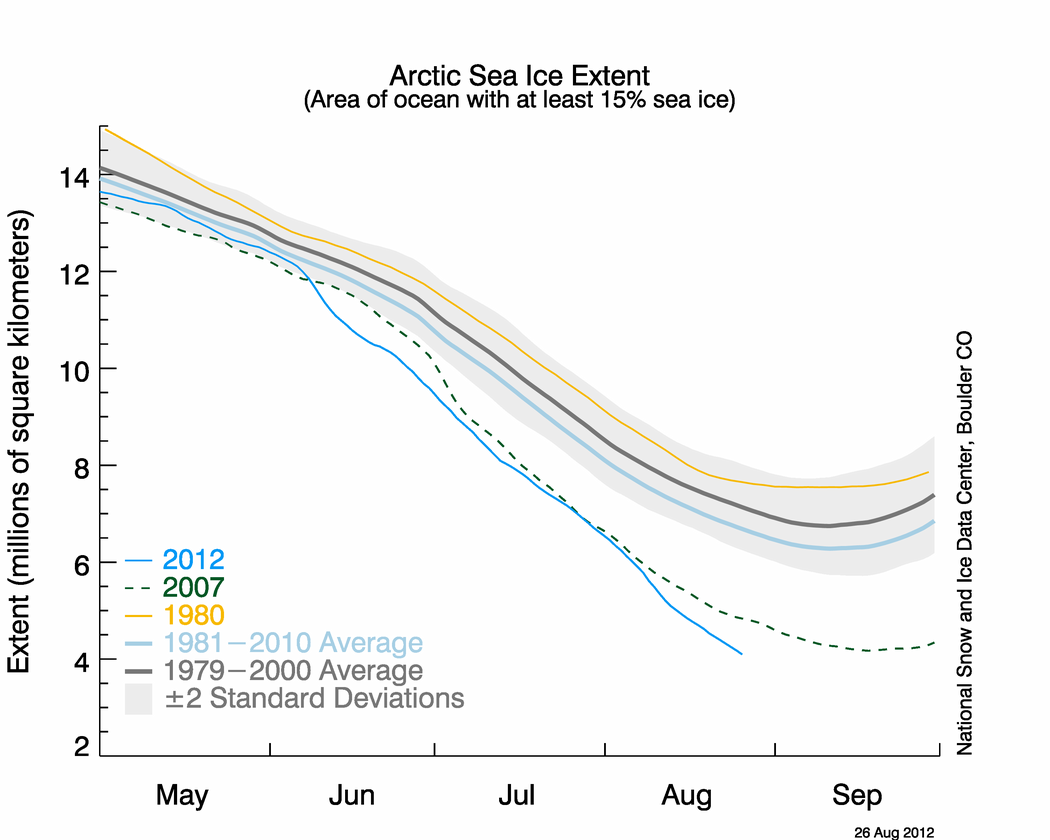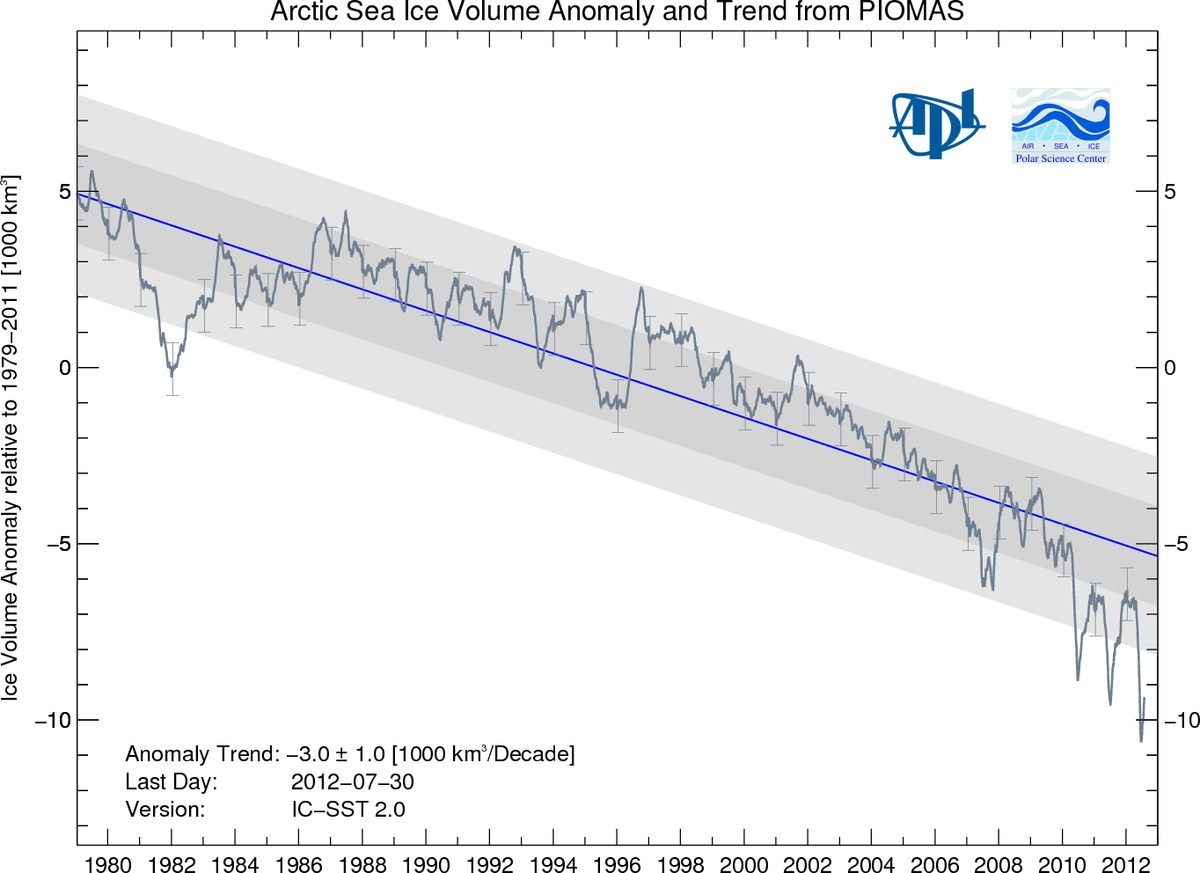The loss of Arctic sea ice is progressing more rapidly and clearly than just about any other indicator of global climate change. As I’ve discussed previously, the minimum summer sea ice extent (i.e. the two-dimensional area of the floating ice cap) set new record lows in 2002, 2005 and 2007. Similarly, the total volume of sea ice set record lows in 2007, 2010 and 2011. For the first time since 2007, both the sea ice extent and volume have set new record lows in the same year (see figures). And what’s more, they did it with weeks remaining in the melt season, which usually ends in mid-September. So the records have been broken this year, but we don’t know yet just how low the extent and volume will go.


